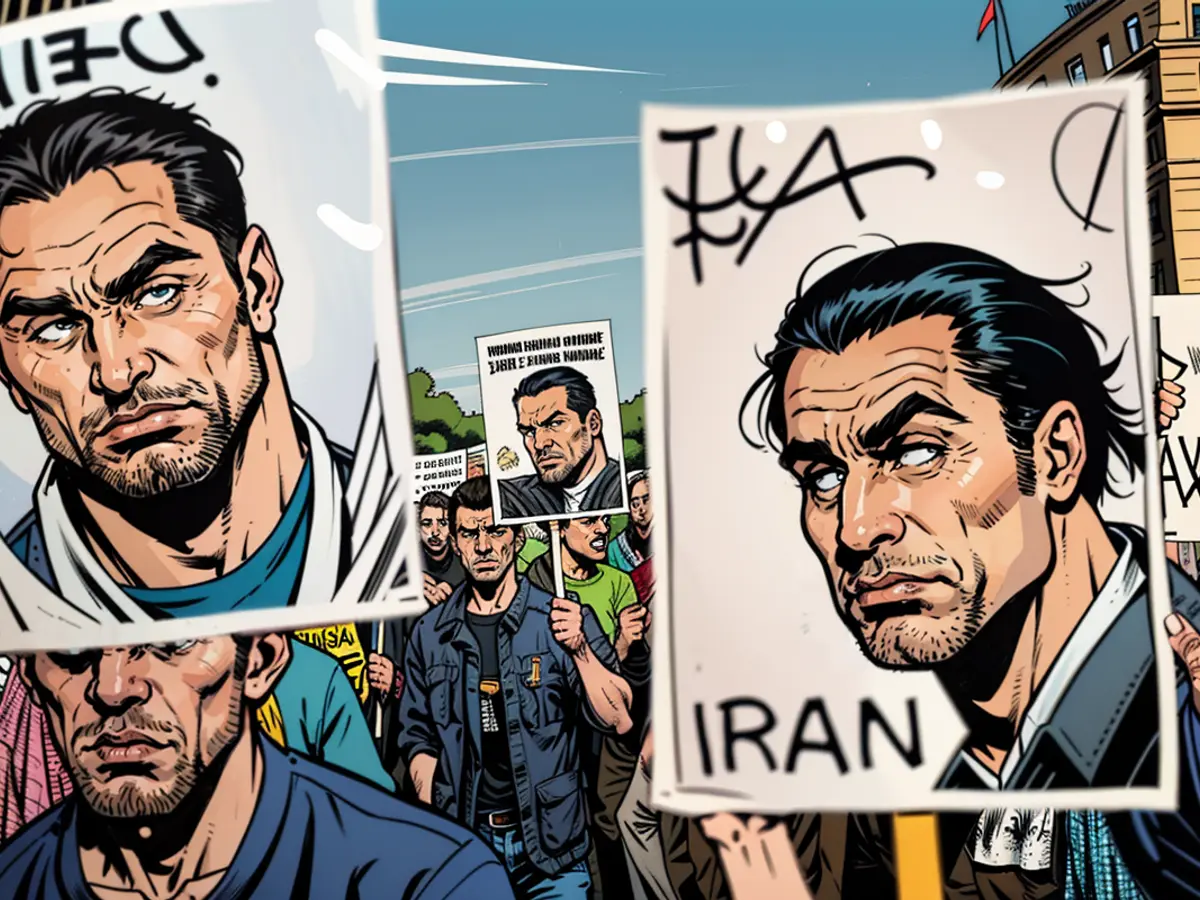Iranian rapper Toomaj's death penalty has been overturned.
Rocker Salehi, a significant figure against the government in Iran, openly critiques the oppressive Iranian government through his music and social media posts. In October 2022, as intense protests swept Iran following the death of a young woman, Mahsa Amini, in the morality police custody, Salehi joined the protest movement, lending his support.
Salehi asserts he was subjected to torture and solitary confinement after his initial arrest in October 2022 for his involvement in the protests. He was later temporarily freed from prison in 2023, but was re-arrested for "making false allegations and spreading false news," as per the Iranian judiciary news agency Mizan. He was then sentenced to death in May of this year. A trial court in the central city of Isfahan convicted him of the crime of "corruption on earth," imposing the maximum sentence of death.
On Saturday, Salehi's lawyer, Amir Raesian, announced the reversal of his sentence in a post on X, indicating that the Iranian Supreme Court had "avoided a grievous judicial error" and overturned Salehi’s death sentence this week. In its ruling, Iran's highest court found the prison sentences previously given to Salehi to be "excessive" and non-compliant with Iranian law.
The news was celebrated by the advocacy group Index on Censorship, who have been actively advocating for Salehi's release and working closely with legal teams in London's Doughty Street Chambers to overturn his death sentence.
“The judgment is a clear evidence of the injustice of the lower court’s decision, and we are thrilled that Salehi no longer faces the gallows. The Supreme Court found that the death sentence delivered to Salehi was excessive and contravened Iranian law,” the group said in a statement on Saturday.
Salehi’s case will now be referred back to the lower court in Isfahan for re-sentencing, Index On Censorship said, expressing disapproval of any further imprisonment for the rapper.
“Even a shorter term of imprisonment would be unfair: Salehi has done nothing but to call for the respect of his, and other Iranians’, fundamental rights,” the group added.
London-based human rights lawyer Caoilfhionn Gallagher, who is the international counsel for the Salehi family, said while it was "encouraging" that his life had been "saved" by the Iranian authorities, it was "not enough." Gallagher, who, along with a team of colleagues, submitted an urgent appeal to the UN regarding Salehi’s case in May, again demanded his "unconditional" release.
Gallagher called upon the international community to maintain pressure at this crucial time, to ensure Salehi's freedom and hold Iran accountable for its violations of international human rights law.
The campaign for Salehi's release has garnered support from notable figures worldwide. The Recording Academy, organizers of the Grammy Awards, issued a statement in April expressing concern over Salehi's situation.
"No artist should have to live in fear when expressing themselves through their art," the statement said.
British business tycoon Richard Branson was also among those supporting Salehi's release, calling it "unbearable to listen to Toomaj's music, read his lyrics, and not be deeply moved by his message."
Within Iran, over 300 Iranian musicians signed a public statement expressing their opposition to Salehi's death sentence, describing him as "a champion of the moral aspirations of an entire generation of Iranians."
Index on Censorship CEO, Jemimah Steinfeld, expressed hope that the decision would allow Salehi to "seek the medical attention he needs and continue his important work.”
Claudia Bennett, a legal and programs officer at the Human Rights Foundation, called Salehi's case "emblematic of the brutality of dictatorships."
"They use arbitrary detention to silence dissidents and those advocating for democracy and human rights. Toomaj's crime was making music and posting on social media. Something that we in democracies take for granted," she added.
Read also:
The overturned death sentence of Iranian rapper Toomaj has sparked worldwide celebrations, with advocacy groups and international figures calling for his unconditional release. This development in the Middle East has also brought attention to the excessive prison sentences and violations of human rights in Iran.
The news of Toomaj's sentence reversal has resonated globally, underscoring the need for the world to maintain pressure on Iran to uphold its obligations under international human rights law.







